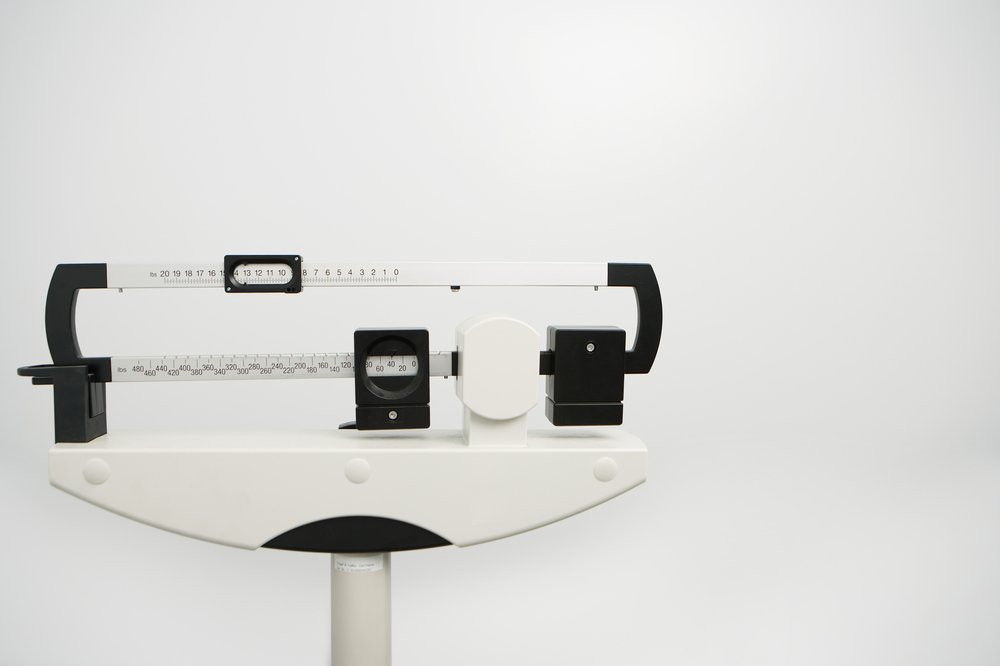Investigators found that weight loss surgery caused a sustained drop in previously high blood sugar (glucose) levels as well as levels of certain lipids (fats). Photo by bikeriderlondon/Shutterstock
While the immediate goal of bariatric surgery is to help obese patients lose weight, new research shows it can also reduce the complications of diabetes, including nerve damage.
Investigators followed 127 patients who underwent bariatric surgery for two years. They found that surgery led to a sustained drop in previously high blood sugar (glucose) levels as well as levels of certain lipids (fats).
Advertisement
But the procedure was also linked to marked improvements in peripheral neuropathy, a condition that undermines the density of nerve fibers throughout the body. It can cause weakness, numbness, and pain, often in the hands and feet.
“We weren’t surprised to see this patient’s neuropathy improve, as bariatric surgery improves obesity, diabetes, and cholesterol,” the study author explained. Dr Brian Callaghanneurologist at the University of Michigan Health.
A strict diet alone — without surgery — may also promote the kind of metabolic improvements that reduce the risk of diabetes, Callaghan acknowledged. Diet alone may also result in some neurological improvement, he noted.
But he pointed out that his team found “both metabolic and neuropathic improvements were more impressive after bariatric surgery.”
More than 100 million Americans are obese, the study authors pointed out. They also noted that obesity is the second-leading risk factor for developing peripheral neuropathy, which affects more than 30 million Americans.
Callaghan said bariatric surgery is usually reserved for patients who “have tried to lose weight and couldn’t, especially those with a very high body mass index.” [BMI]”, a standard measure of obesity.
Patients in the study were 18 years of age and older, with a BMI of 35 or greater. Anyone with a BMI of 30 or more is classified as obese. All had bariatric surgery at some point between 2015 and 2018.
To assess the status of peripheral neuropathy, skin biopsies were taken before surgery to measure nerve fiber density in the thigh and leg. Blood tests were also done to assess blood sugar and lipid levels before the operation.
Additionally, two years after surgery, just over 60% of patients have undergone in-person follow-up testing, alongside approximately 20% who have engaged in virtual follow-ups due to the onset of the pandemic. of COVID-19.
On average, the patients had lost more than 66 pounds (30 kg). The team found that almost all metabolic risk factors, including blood sugar and blood lipid levels, had “significantly improved”, although no improvement was seen in blood pressure or total cholesterol level.
Improved metabolic profiles appear to have a positive impact on the risk of pre-diabetes and diabetes, with improvements observed in 54% of patients and stabilization in approximately 44% of patients.
In terms of peripheral neuropathy, the researchers found that the surgery caused improvements in nerve fiber density in the thigh, suggesting that the intervention encouraged the regeneration of damaged nerves. The density of nerve fibers in the leg has stabilized.
Patients who underwent weight loss surgery also experienced a significant drop in pain associated with previous nerve damage. Additionally, they reported significant improvements in overall quality of life and quality of life related to neurological foot problems.
Callaghan said more research is needed to better understand precisely how weight loss surgery triggers such neurological benefits.
“We think weight loss is a major factor, especially since diet also appears to improve peripheral neuropathy, but it’s also possible that surgical changes play a role that doesn’t lead to weight loss.” , did he declare.
“It remains a very important thing to study in the future,” added Callaghan. He noted that his team has already embarked on another investigation that will explore whether exercise, bariatric surgery, or both help peripheral neuropathy the most.
Dr. John Morton is division chief of bariatric and minimally invasive surgery at the Yale School of Medicine.
Morton said it’s not easy to assess the types of neurological changes the team sees, because nerve regrowth tends to happen very slowly. However, he too said he was “not surprised” by the results.
“The surgery is unique,” Morton said, in terms of its impact on hormones related to weight loss and hunger and its impact on metabolism and brain-gut interactions. So when it comes to tackling diabetes risk factors and peripheral neuropathy, bariatric surgery appears to offer “many routes to success,” compared to diet alone.
His take: “Strongly consider bariatric surgery if you have diabetes and obesity. They can not only be managed, but also put into remission.”
Morton, who was not involved in this study, also chairs the American College of Surgeons Committee for Metabolic and Bariatric Surgery.
The results of the study were recently published in the journal Diabetology.
More information
There’s more on bariatric surgery options at US National Institute of Diabetes and Digestive and Kidney Diseases.
Copyright © 2023 Health Day. All rights reserved.
